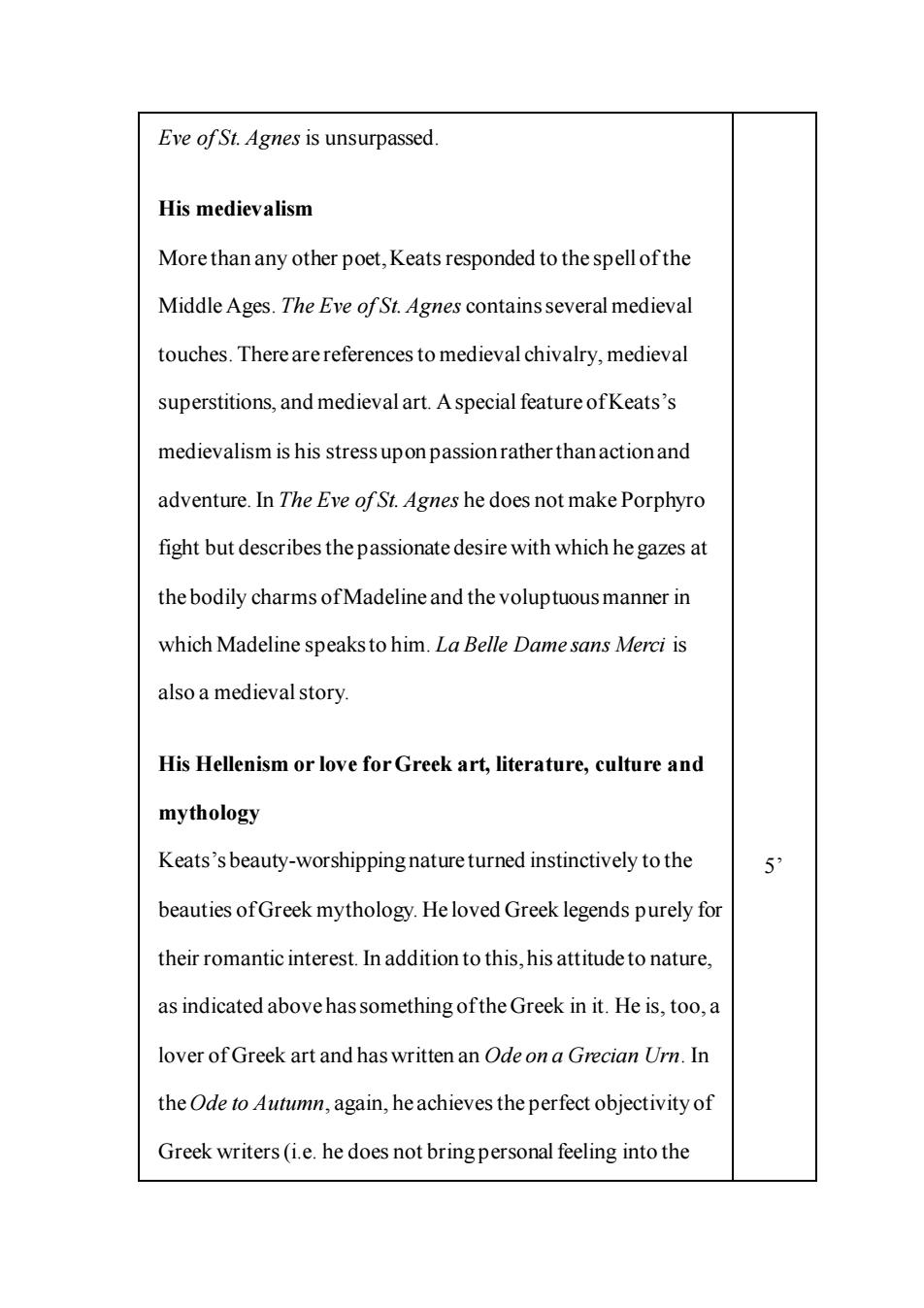正在加载图片...

Eve ofSt.Agnes is unsurpassed. His medievalism More thanany other poet,Keats responded to the spell ofthe Middle Ages.The Eve of St.Agnes contains several medieval touches.Therearereferences to medieval chivalry,medieval superstitions,and medieval art.Aspecial feature ofKeats's medievalism is his stress upon passionrather thanactionand adventure.In The Eve ofSt.Agnes he does not make Porphyro fight but describes the passionate desire with which he gazes at the bodily charms of Madeline and the voluptuous manner in which Madeline speaksto him.La Belle Dame sans Merci is also a medieval story His Hellenism or love for Greek art,literature,culture and mythology Keats's beauty-worshipping nature turned instinctively to the 5 beauties ofGreek mythology.He loved Greek legends purely for their romantic interest.In addition to this,his attitude to nature as indicated above hassomething ofthe Greek in it.He is,too,a lover of Greek art and has written an Ode on a Grecian Urn.In the Ode to Autumn,again,heachieves the perfect objectivity of Greek writers(i.e.he does not bring personal feeling into the Eve of St. Agnes is unsurpassed. His medievalism More than any other poet, Keats responded to the spell of the Middle Ages. The Eve of St. Agnes contains several medieval touches. There are references to medieval chivalry, medieval superstitions, and medieval art. A special feature of Keats’s medievalism is his stress upon passion rather than action and adventure. In The Eve of St. Agnes he does not make Porphyro fight but describes the passionate desire with which he gazes at the bodily charms of Madeline and the voluptuous manner in which Madeline speaks to him. La Belle Dame sans Merci is also a medieval story. His Hellenism or love for Greek art, literature, culture and mythology Keats’s beauty-worshipping nature turned instinctively to the beauties of Greek mythology. He loved Greek legends purely for their romantic interest. In addition to this, his attitude to nature, as indicated above has something of the Greek in it. He is, too, a lover of Greek art and has written an Ode on a Grecian Urn. In the Ode to Autumn, again, he achieves the perfect objectivity of Greek writers (i.e. he does not bring personal feeling into the 5’